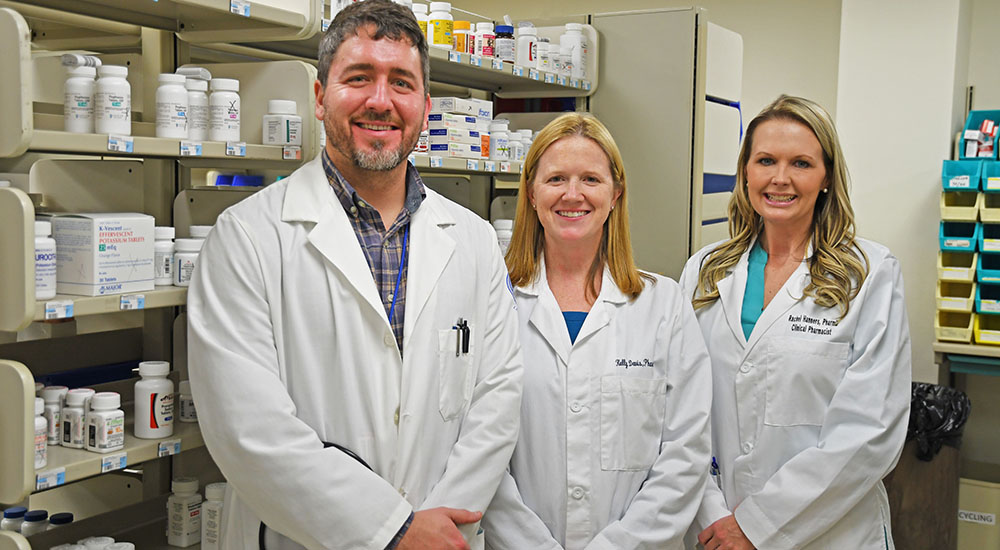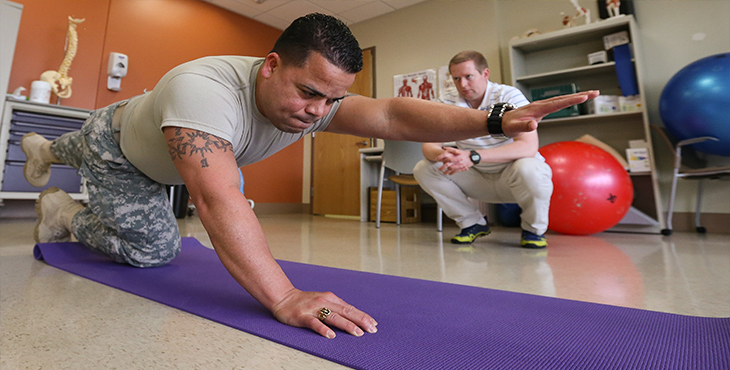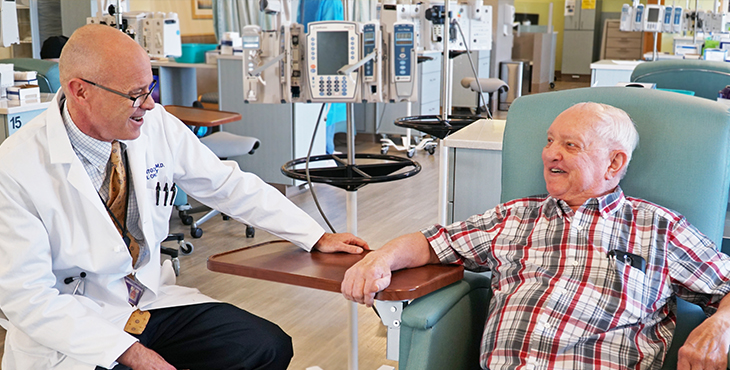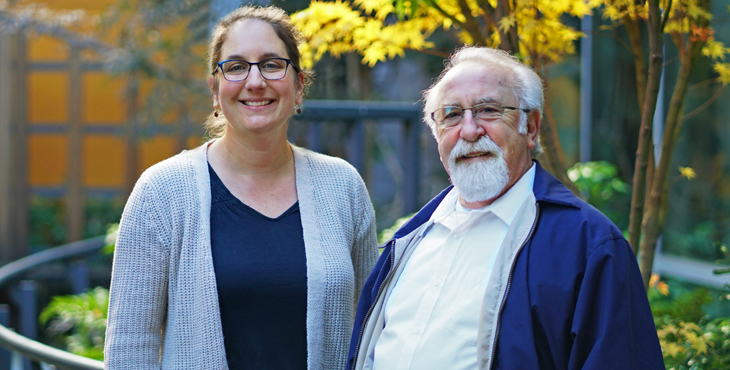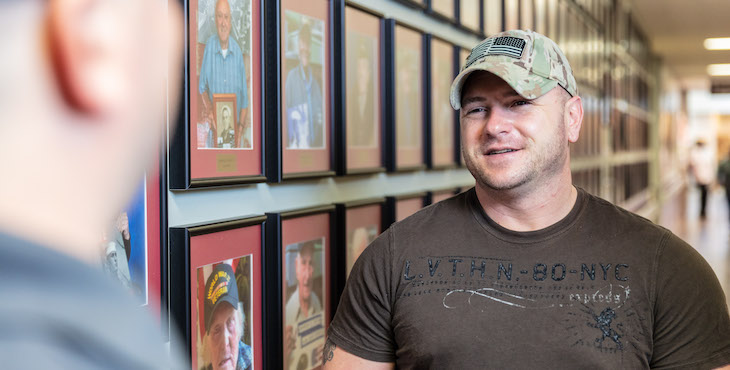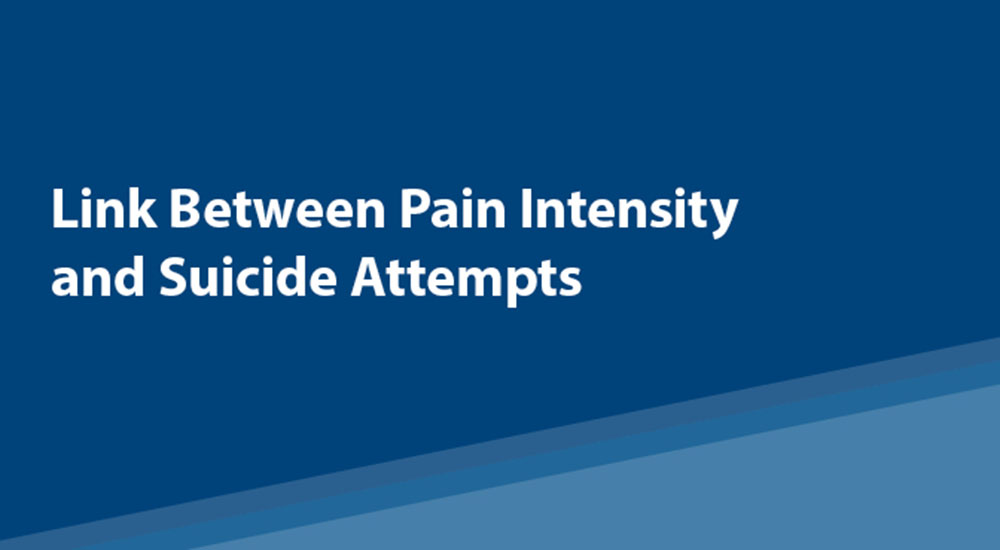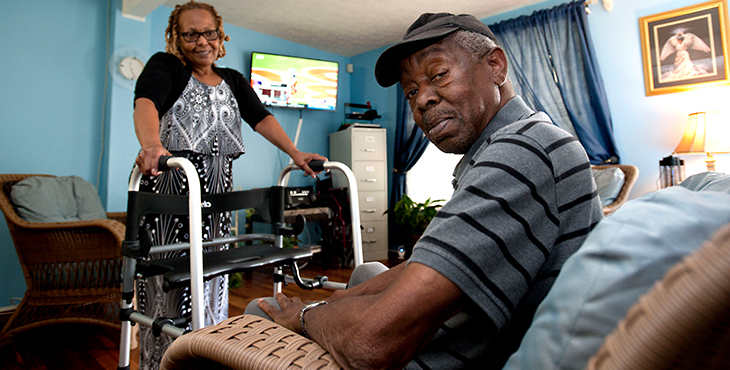When it comes to exploring new ways to care for patients, VA has a unique advantage: We’re the nation’s largest integrated health care system. And that means we can access the nation’s largest store of voluntary patient data.
Acid-blocking drugs are among the most commonly prescribed drugs. A VA program is underway to scale back their use, in line with best practices. VA researchers are evaluating the effort.
A recent study found that non-drug therapies given to service members with chronic pain may reduce the risk of long-term adverse outcomes, such as alcohol and drug disorder or suicide attempts.
In this episode, Matt Miller, Ph.D., MPH, discusses VA's progress and plans for implementing more evidence-based suicide prevention practices.
A set of research projects at the Cleveland FES Center is using deep brain stimulation, virtual reality, and other technology to better understand how Parkinson's disease affects walking and balance.
A partnership between VA and the Prostate Cancer Foundation is speeding the development of treatments and cures for Veterans with aggressive—or metastatic—prostate cancer through precision oncology.
A new study finds Veteran prevalence of hepatitis B to be greatest among those with traditional risk factors, but also suggests that combat exposure can be a risk factor on its own.
“From Science to Practice” translates published research into informative tips that VA suicide prevention coordinators and providers can use to support their patients.
Dr. Paul King, an Army Veteran, is a clinical research psychologist at the VA Center for Integrated Healthcare, located at the VA Western New York Healthcare System. He’s also the associate director of the CIH Postdoctoral Fellowship Program.
Help end Veteran homelessness as a postdoctoral fellow by apply for a fellowship at the VA National Center on Homelessness among Veterans.
VA’s Center of Excellence for Suicide Prevention studied the potential correlation between reported pain intensity and suicide attempts. Results: How pain treatment can be a suicide prevention tactic.
VA medical foster homes are a sensible way to deliver 24/7 long-term care for Veterans, says Dr. Cari Levy of the Denver VA Medical Center. Her research has shown cost and mortality benefits, compared with conventional nursing home care.


